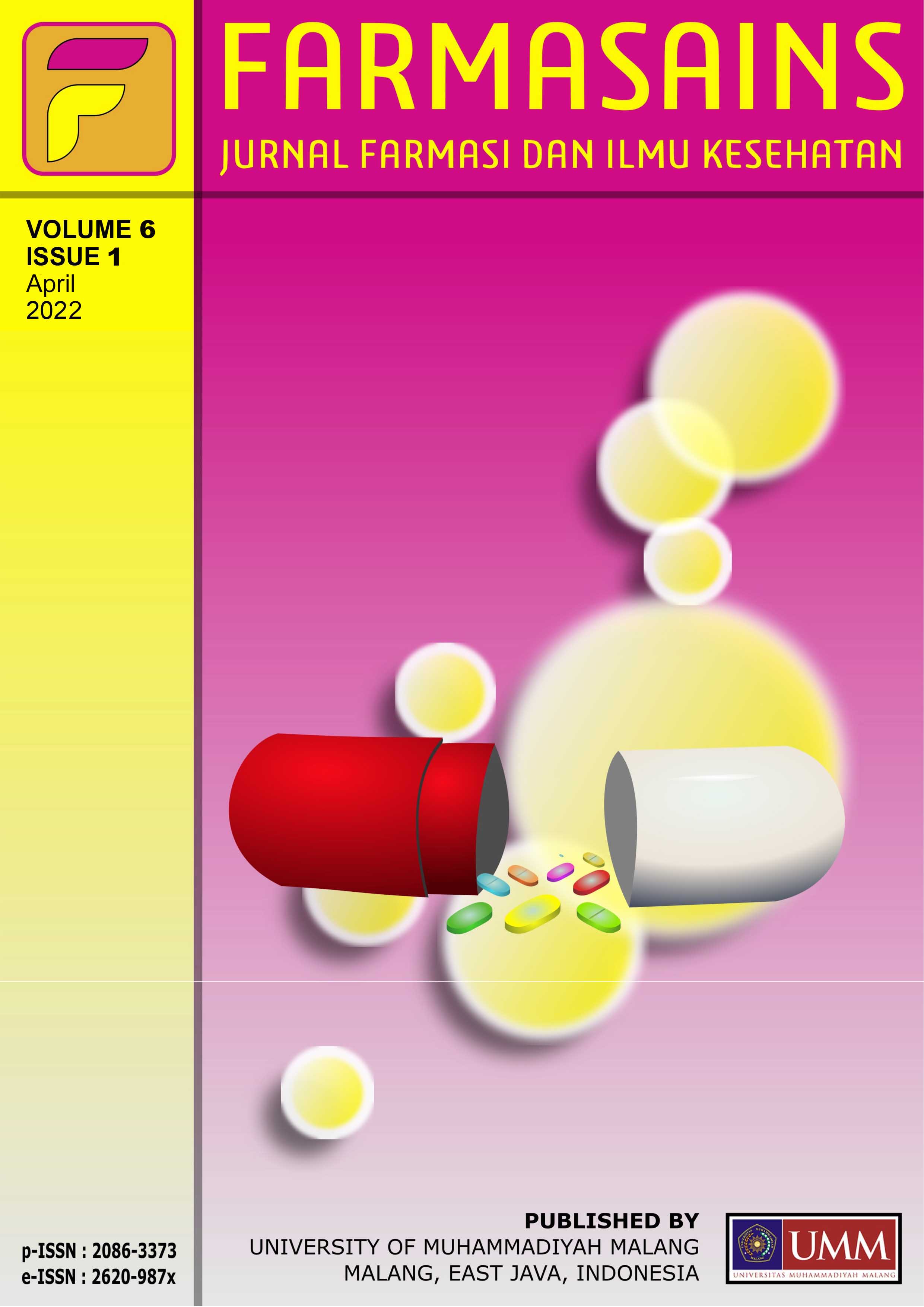Analysis of BPJS patient satisfaction levels against pharmaceutical services in outpatient pharmacy installation of Anwar Medika Hospital
DOI:
https://doi.org/10.22219/farmasains.v6i1.13862Keywords:
Pharmaceutical services, Satisfaction, Expectation, BPJSAbstract
Good pharmaceutical services are directly oriented in using drugs, aiming to ensure the safety, effectiveness, and rationality of drug use by applying science and function in patient's care. Patients who have insurance are also entitled to get good service or quality, one of the government's insurance, namely BPJS. This study analyzes patient satisfaction with services seen from 5 dimensions, namely the dimensions of reliability, responsiveness, assurance, empathy, and tangibility. This research is an observational type with the cross-sectional method and was carried out by purposive sampling. Data collection was carried out in March-April 2020 using a questionnaire. Data analysis was carried out descriptively by comparing the satisfaction and expectation values , which were then related to the range value to obtain the patient's satisfaction level. The results of this study of 51 respondents obtained an average level of satisfaction value of 0.85 (high) from the five dimensions, namely reliability of 0.86 (high), the responsiveness of 0.68 (sufficient), assurance of 0.90 (high), empathy is 0.94 (high), and reality is 0.91 (high).
Downloads
References
Andriani, R. M., Wahyuni, K. I., & Anindita, P. R. (2020). Pengaruh Pelayanan Kefarmasian Terhadap Kepuasan Pasien Hipertensi Rawat Jalan Di Rumah Sakit Anwar Medika. Journal of Pharmacy Science and Technology 2(1), 88-96. doi: 10.30649/pst.v2i1.102.
Arikunto, S. (2011). Prosedur Penelitian : Suatu Pendekatan Praktik. Jakarta, Indonesia: Rineka Cipta.
Gaspersz, V. (2005). Sistem Manajemen Kinerja Terintegrasi: Balanced Scorecard Dengan Six Sigma Untuk Organisasi Bisnis Dan Pemerintah. Jakarta, Indonesia: Gramedia Pustaka Utama.
Hadjam, M. N. R. (2001). Efektivitas pelayanan prima sebagai upaya meningkatkan pelayanan di Rumah Sakit (Perspektif Psikologi). Jurnal Psikologi, 28(2), 105-115.
Kementerian Kesehatan Republik Indonesia. (2014a). Pedoman Pelaksanaan Program Jaminan Kesehatan Nasional. Jakarta, Indonesia: Authors.
Kementerian Kesehatan Republik Indonesia. (2014b). Buku Pegangan Sosialisasi Jaminan Kesehatan Nasional (JKN) Dalam Sistem Jaminan Sosial Nasional. Jakarta, Indonesia: Authors.
Listiyana, I., & Rustiana, E. R. (2017). Analisis Kepuasan Jaminan Kesehatan Nasional Pada Pengguna BPJS Kesehatan di Kota Semarang. Unnes Journal of Public Health, 6(1), 53-58.
Purwandari, S. I., & Maharani, C. (2015). Analisis Sikap Pekerja Informal Non PBI Yang Belum Terdaftar Program Jaminan Kesehatan Nasional (Jkn) 2014 Di Kabupaten Brebes. UNNES Journal of Public Health, 4(2), 84-91. doi: 10.15294/ujph.v4i2.5039.
Umar, H. (2003). Metode Riset Perilaku Konsumen Jasa. Jakarta, Indonesia: Ghalia Indonesia.
Wiyono, A. S. (2006). Studi tentang kualitas pelayanan dan kepuasan konsumen di Rumah Sakit Islam Manisrenggo Klaten (Master Thesis). Universitas Muhammadiyah Surakarta, Solo, Indonesia. Retrieved from http://eprints.ums.ac.id/6799/
Downloads
Published
How to Cite
Issue
Section
License
Copyright (c) 2021 Ahmad Zulfikar Badri, Khurin In Wahyuni, Puspita Raras Anindita

This work is licensed under a Creative Commons Attribution 4.0 International License.
Authors who publish with this journal agree to the following terms:
a. Authors retain copyright and grant the journal right of first publication with the work simultaneously licensed under a Creative Commons Attribution License that allows others to share the work with an acknowledgement of the work's authorship and initial publication in this journal.
b. Authors are able to enter into separate, additional contractual arrangements for the non-exclusive distribution of the journal's published version of the work (e.g., post it to an institutional repository or publish it in a book), with an acknowledgement of its initial publication in this journal.
c. Authors are permitted and encouraged to post their work online (e.g., in institutional repositories or on their website) prior to and during the submission process, as it can lead to productive exchanges, as well as earlier and greater citation of published work (See The Effect of Open Access).













